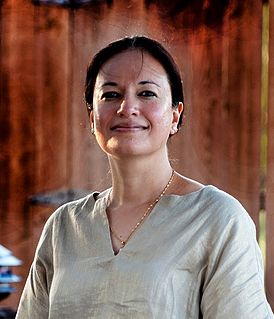A Quote by Nyla Ali Khan
The much-lauded parliamentary democracy in India has been unable to protect a genuine democratic set-up in Kashmir.
Quote Topics
Related Quotes
It is now that the Left in India is urging the federal government to initiate unconditional talks with all stakeholders in Kashmir. Otherwise, up until now, the Left didn't even support the autonomous status of Kashmir, and the Kashmir imbroglio is not a conflict between the forces of Marxism and capitalism.
The Constitution of India seeks to guarantee respect for the rule of law, the independence of the judiciary, and the integrity of the electoral process. But time and again, provisions of the Constitution of India have been flagrantly violated in Kashmir, and the ideals that it enshrines have been forgotten.
I think some people have blind faith in American institutions without knowing a whole lot about them and think they will stand up to Donald Trump and are indestructible. I actually think democracy is not a definable and achievable state. Any country is either becoming more democratic or less democratic. I think the United States hasn't tended to its journey toward democracy in a long time. It's been becoming less democratic, and right now it's in danger of becoming drastically less democratic.
India had barely become independent, in 1947, when Pakistan invaded Kashmir, which at the time was ruled by a maharajah. The maharajah fled, and the people of Kashmir, led by Sheikh Abdullah, asked for Indian help. Lord [Louis] Mountbatten, who was still governor general, replied that he wouldn't be able to supply aid to Kashmir unless Pakistan declared war, and he didn't seem bothered by the fact that the Pakistanis were slaughtering the population.
Remember, until the 1970s, the spread of democracy has always been accompanied by the decline of inequality. The more democratic our societies have been, the more equal they have been becoming. Now we have the reverse tendency. The spread of democracy now is very much accompanied by the increase in inequality.

































